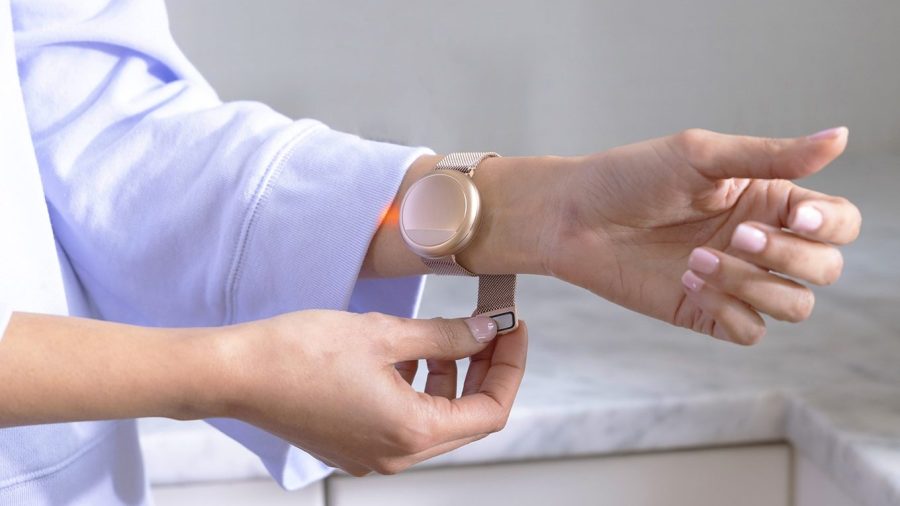Menopause technology could finally be having its moment

This story was produced by our colleagues at the BBC.
The 34-plus symptoms of menopause can range from hot flushes to anxiety — and if they’re severe, they can wreck a woman’s quality of life. But until recently there’s been a reluctance to research and invest in technology to help. Elizabeth Gazda, the CEO of Boston-based tech startup Embr Labs, said the reasons are cultural and financial.
“I think there’s a perception that when women enter menopause, they’ve lost their value to society, they’re not reproducing. Most of the people making decisions about where investment goes are men. The majority of the investments go to where women are valued, which is fertility and pregnancy.”
Her company has developed a bracelet to help regulate hot flushes and night sweats. Gazda said it works by emitting temperature sensations to the skin.
“Either heating or cooling, and what those sensations do is send a signal to your brain to calm itself down. Menopausal hot flushes are really an overactivation of your sympathetic nervous system or your fight-or-flight response.”
It’s not cheap at $300, but the Labor Department’s consumer expenditure surveys suggest that women over 50 are the largest demographic with incomes over $100,000. Companies are now recognizing this spending power. For instance, Britain-based Magnitone, which sells menopause-friendly electrical beauty devices. Aimie Neighbour, head of brand strategy, said the company has a two-pronged approach.
“We just make it normal as part of the conversation. We choose all of the language and everything that we talk about. The other side is by showing menopause ticks [or symbols], logos and putting out content that specifically talks to menopause and menopausal symptoms.”
The next challenge is convincing people that “menotech” works. Some medics are skeptical about how much products actually help to alleviate symptoms. The U.K.-based menopausal brand adviser GenM has created a menopause-friendly logo in partnership with the drugstore chain Boots. If a product helps with symptoms, it can be given an M-tick.
GenM co-founder Sam Simister said the tick isn’t a guarantee. “Everybody’s menopause is going to be different. It is about choice and control. So it is incredibly hard to say whether one product works for you or whether it won’t. Products that do deploy the M-tick have followed a process, and they have the data that then supports that they are worthy of carrying that M-tick.”
The global menopause market is expected to reach nearly $25 billion annually by 2030, according to Grand View Research. And menotech is just getting started.
The future of this podcast starts with you.
Every day, the “Marketplace Tech” team demystifies the digital economy with stories that explore more than just Big Tech. We’re committed to covering topics that matter to you and the world around us, diving deep into how technology intersects with climate change, inequity, and disinformation.
As part of a nonprofit newsroom, we’re counting on listeners like you to keep this public service paywall-free and available to all.
Support “Marketplace Tech” in any amount today and become a partner in our mission.

















